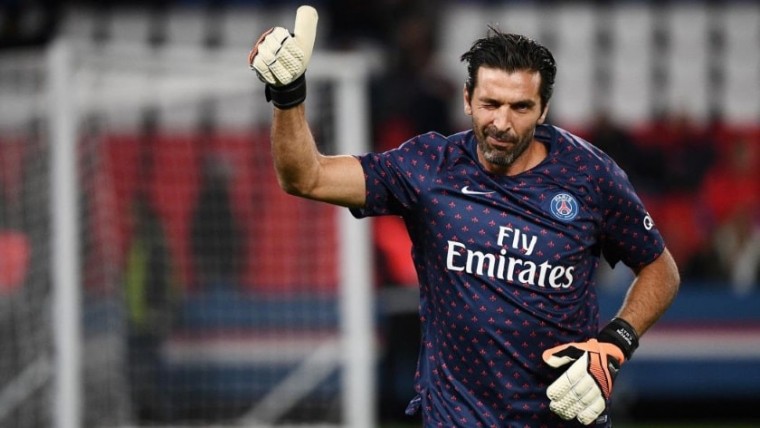When the titans of European football clash, it’s usually on the hallowed turf, under the roar of thousands. But sometimes, the battleground shifts to the quieter, yet equally consequential, confines of the courtroom. Such is the case with Paris Saint-Germain, the Parisian powerhouse synonymous with colossal transfers and superstar wages, which recently found itself on the losing end of a legal dispute with one of football`s most revered figures: legendary Italian goalkeeper, Gianluigi Buffon.
A Quarter-Million Euro Quibble
A recent ruling by the Paris Court of Appeal, delivered on July 10, has mandated Paris Saint-Germain to pay Gianluigi Buffon a sum of 250,000 euros. While a quarter of a million might seem a mere rounding error in the multi-billion-euro ecosystem of top-tier football, this particular sum represents the culmination of a protracted legal saga, stemming from Buffon’s single season with the club (2018-2019) and a rather intricate contractual clause.
The genesis of the dispute traces back to 2021 when Buffon, the iconic former Juventus and Italy national team captain, received a tax assessment exceeding 1.2 million euros from the Italian tax authorities, pertaining to his 2018 earnings. It appears that even football legends are not entirely immune to the keen eye of the taxman, particularly when their earnings traverse international borders.
The «Repatriation Bonus» Clause
At the heart of this financial tug-of-war was a specific contractual stipulation. Upon signing with PSG, Buffon’s contract included a provision designed to mitigate potential future tax liabilities. This clause stipulated that PSG would be responsible for 50% of any potential tax recovery by the Italian fiscal authorities on his 2018 income, up to a net maximum of 250,000 euros. This sum was explicitly defined as a «supplementary repatriation bonus.»
In essence, this was an astute piece of contractual foresight – a financial safeguard for a player moving from one tax jurisdiction to another. For PSG, it might have been seen as a minor concession to secure a player of Buffon’s stature and experience. However, when the tax bill arrived, the implementation of this clause became a point of contention.
The Legal Gauntlet
Buffon initially took his case to a labor court, which ruled in his favor, compelling PSG to honor the agreement. True to their nature, clubs of PSG’s magnitude rarely cede ground without a fight. The Parisian giants promptly appealed the decision, seeking to overturn the initial judgment. Yet, the higher court, the Paris Court of Appeal, ultimately upheld the original ruling, confirming PSG’s obligation to pay the agreed-upon sum.
Interestingly, while Buffon emerged victorious on the main point, he did not secure a further 25,000 euros he had sought as compensation for the club’s «abusive resistance» in initially refusing the payment. A small silver lining for PSG, perhaps, in what has been a rather public and somewhat ironic conclusion to Buffon’s brief, albeit star-studded, stint in the City of Lights.
Beyond the Green Pitch: Lessons in Contracts
This episode serves as a fascinating glimpse into the intricate world of top-tier football contracts, extending far beyond salary and performance bonuses. It underscores the critical importance of carefully drafted clauses to navigate the labyrinthine complexities of international taxation and player movement. For clubs, it’s a reminder that every line in a contract carries financial weight and legal implications, regardless of how modest the sum might appear in the context of astronomical transfer fees.
For Buffon, a man who has won nearly every major honor in football, this legal victory, though for a relatively small amount compared to his career earnings, marks a definitive close to his Parisian chapter, ensuring that even the most meticulous details of his multi-million-euro career are settled, one clause at a time.

